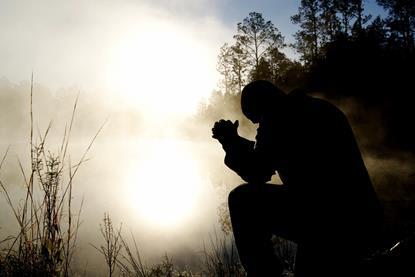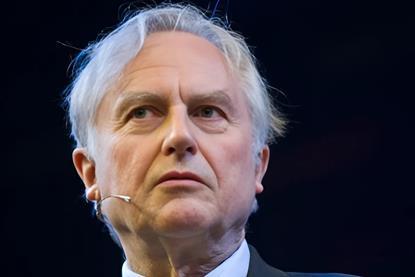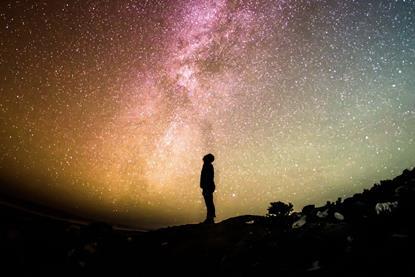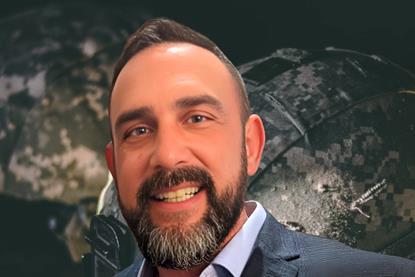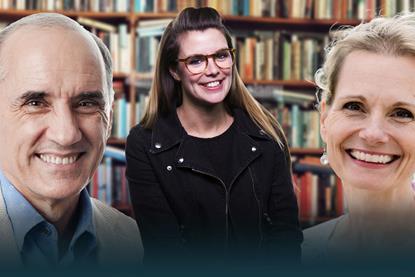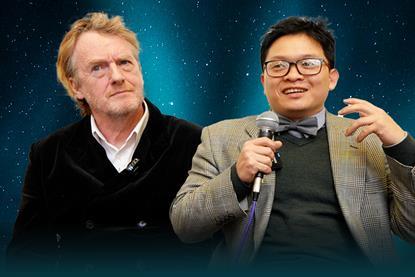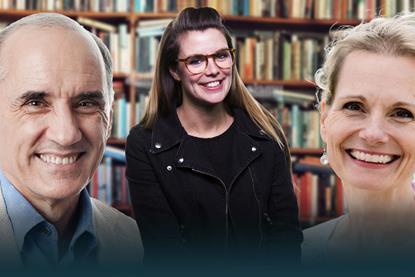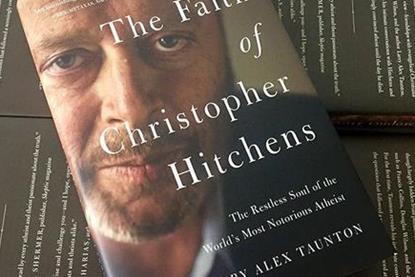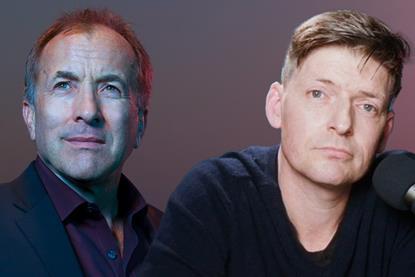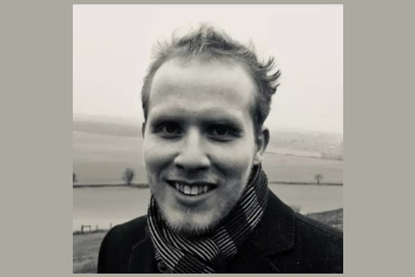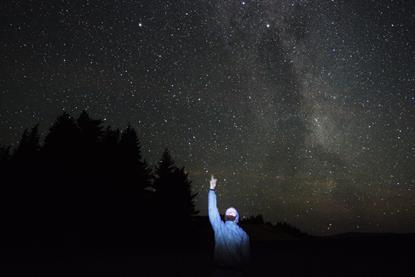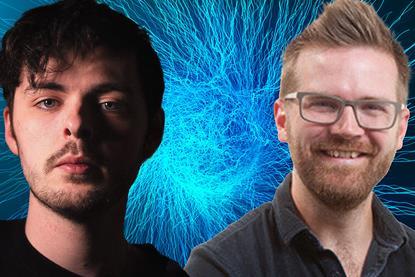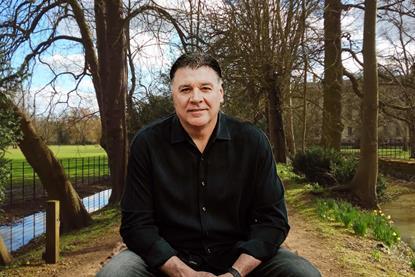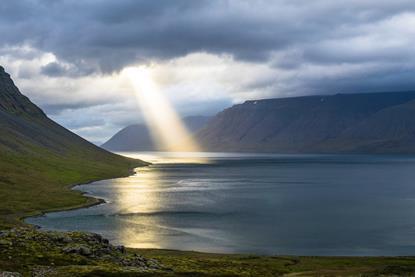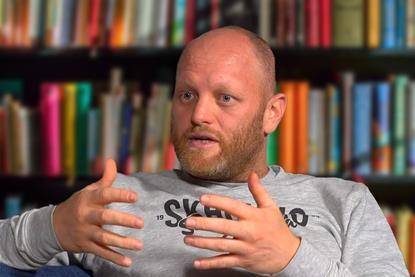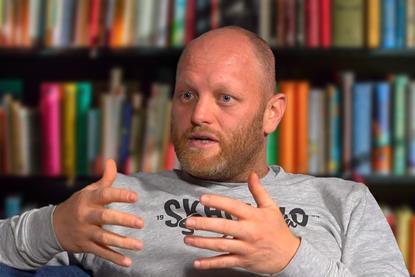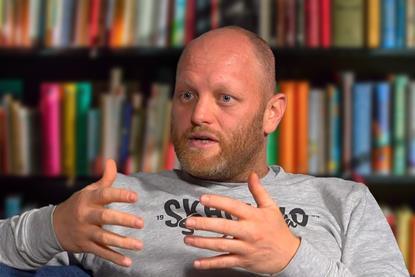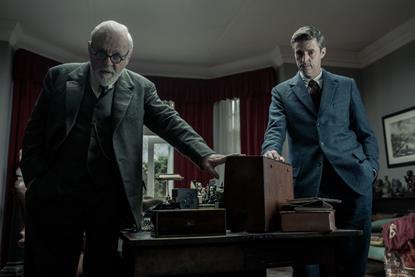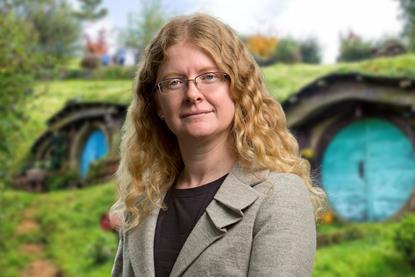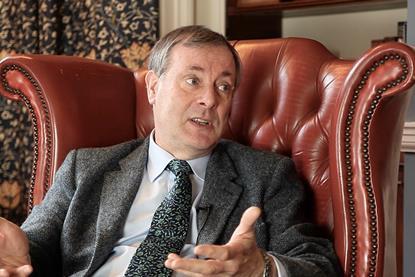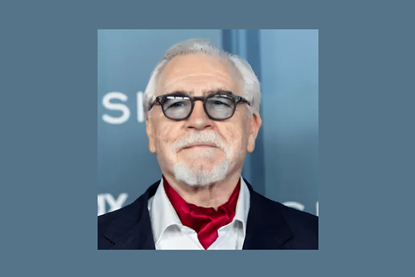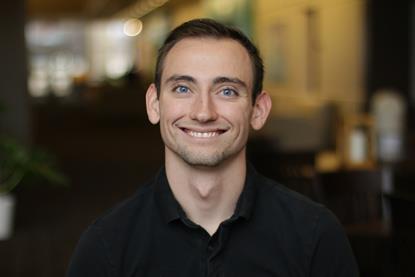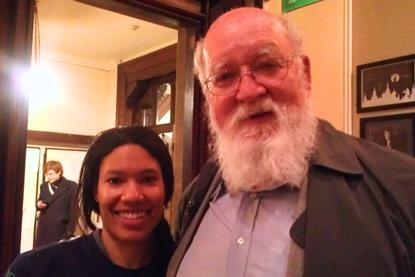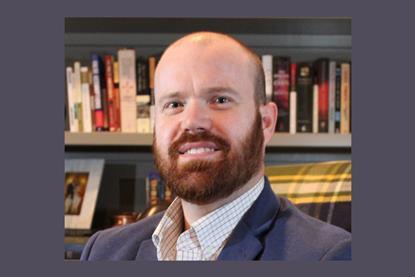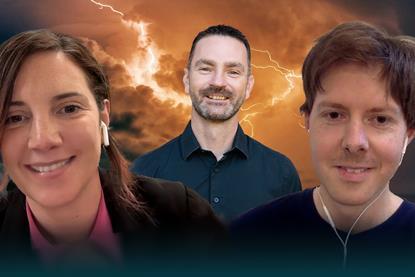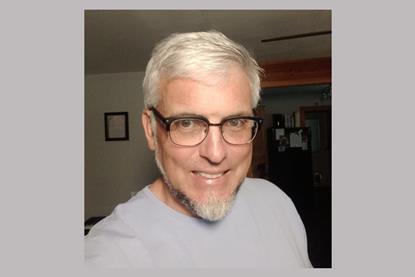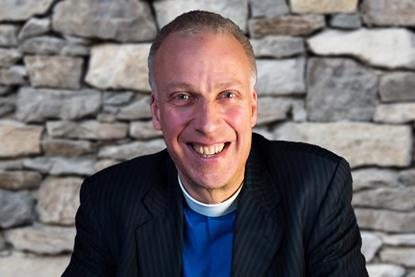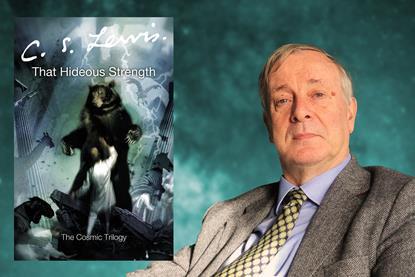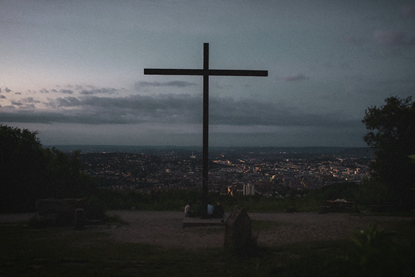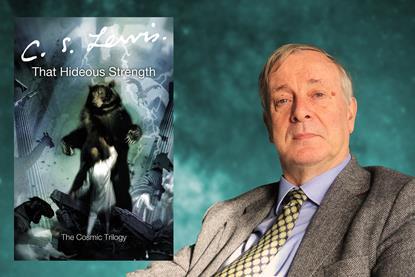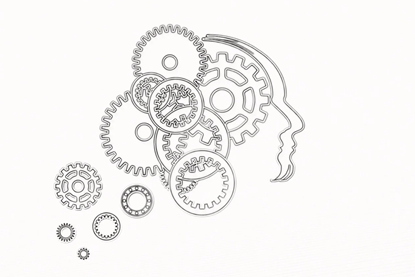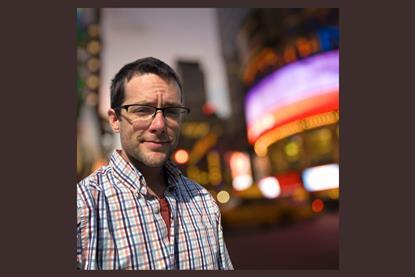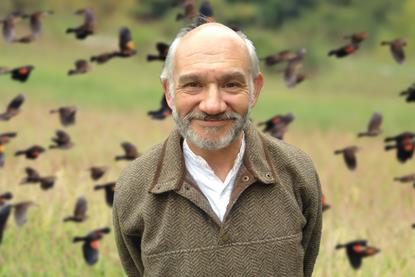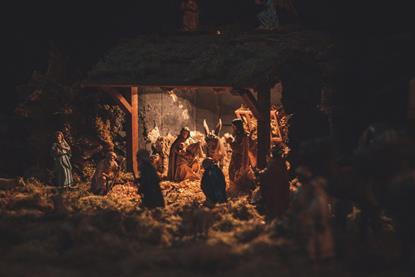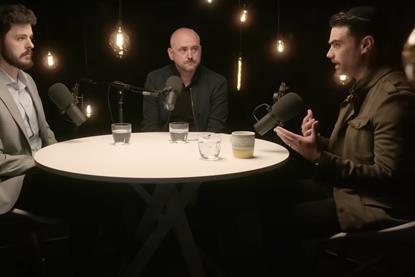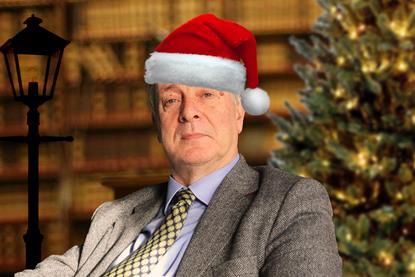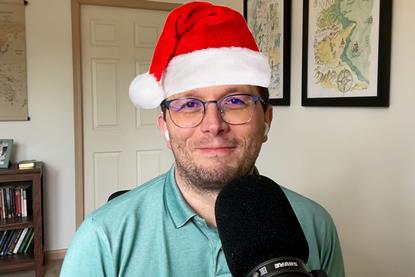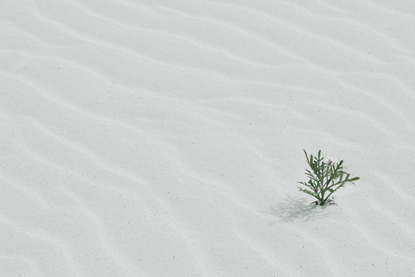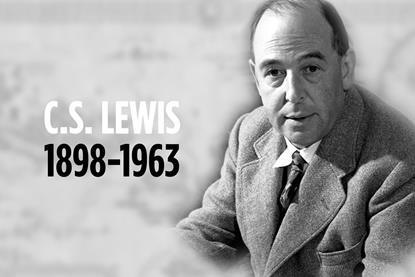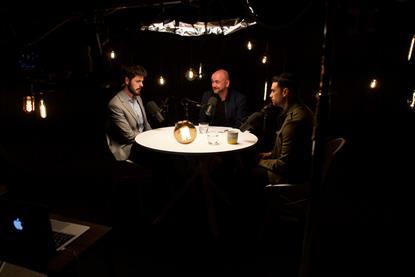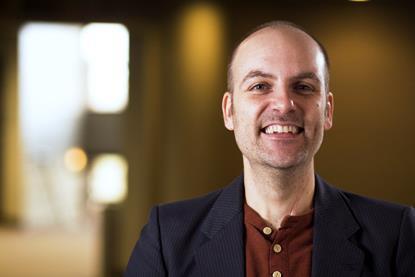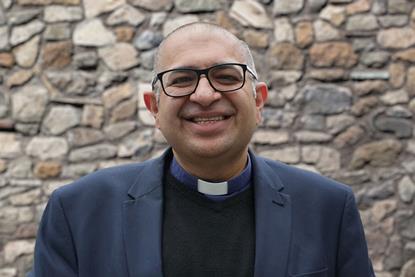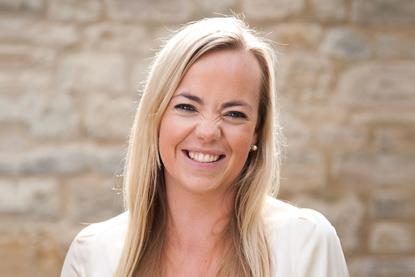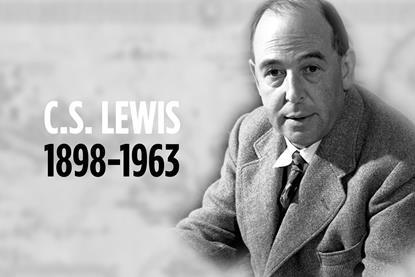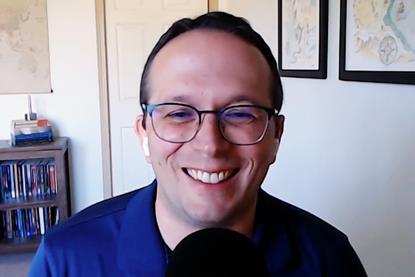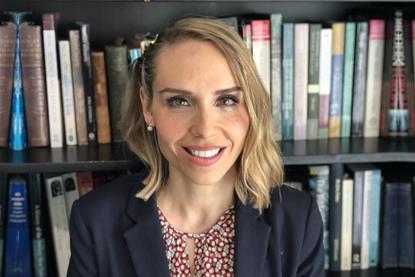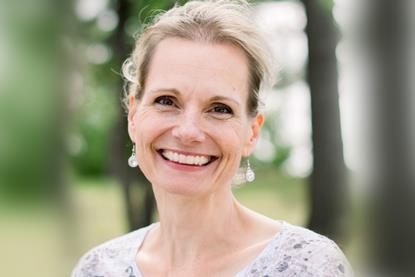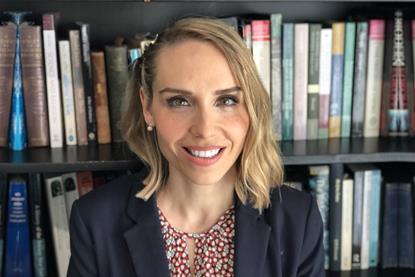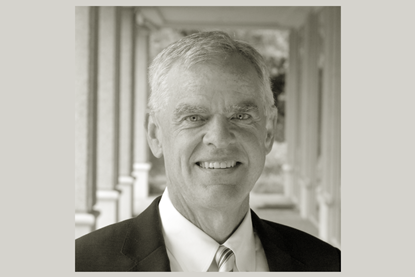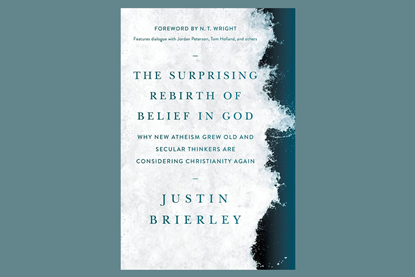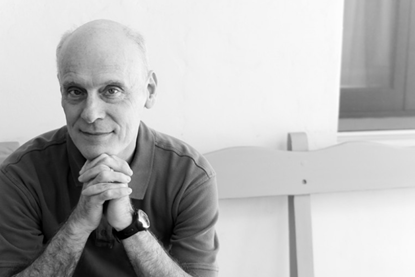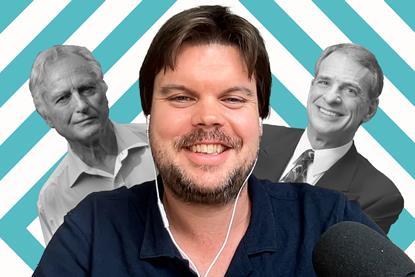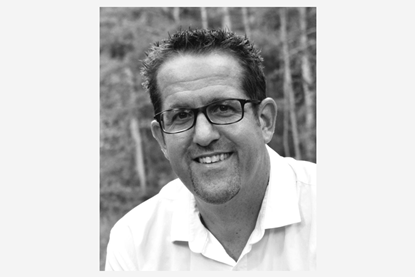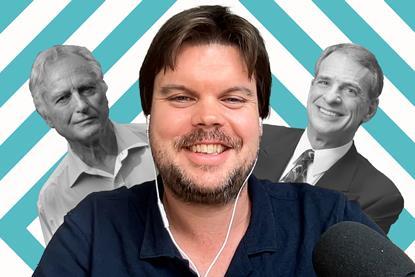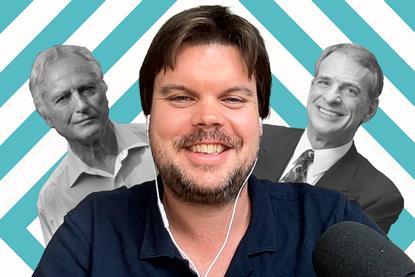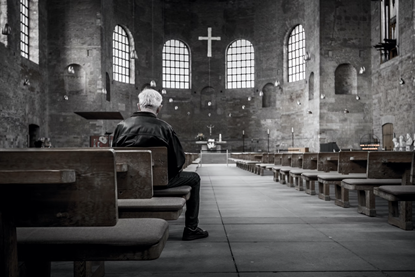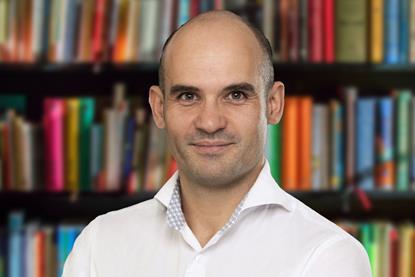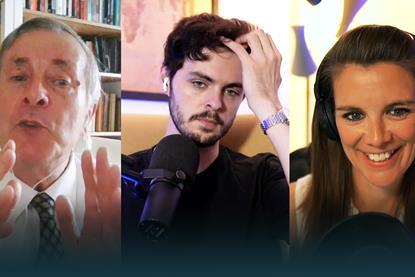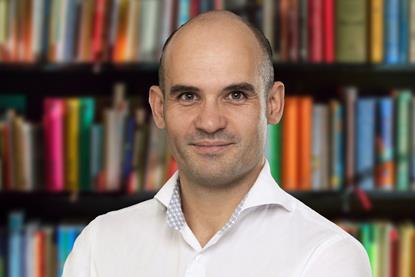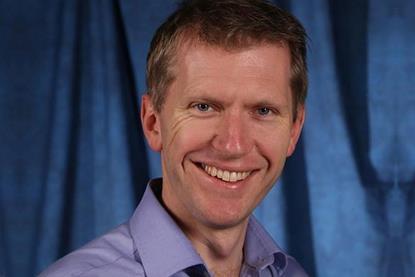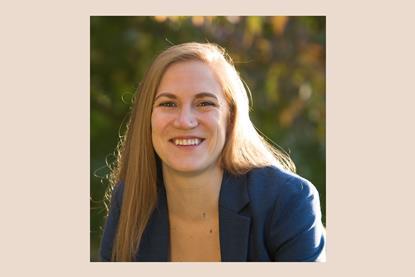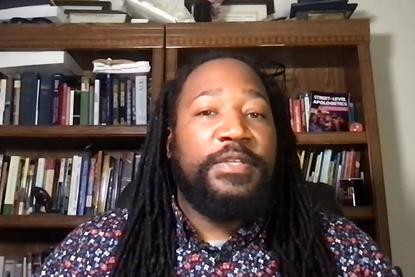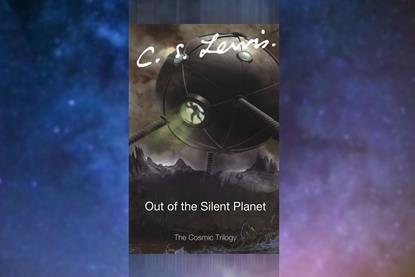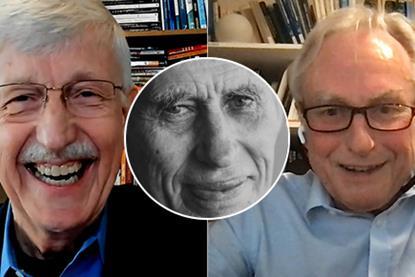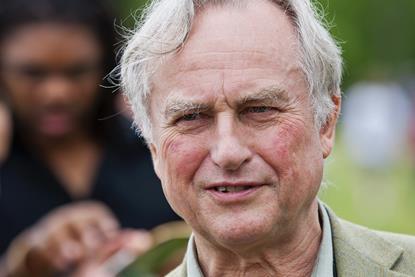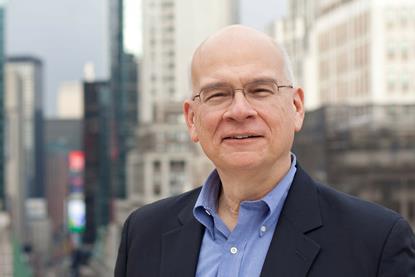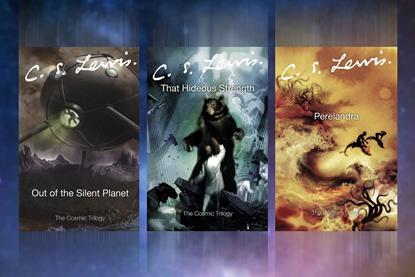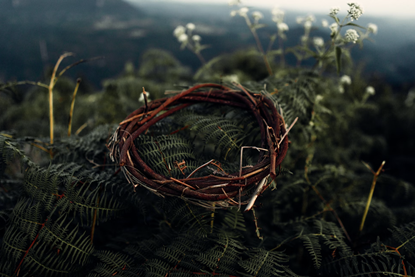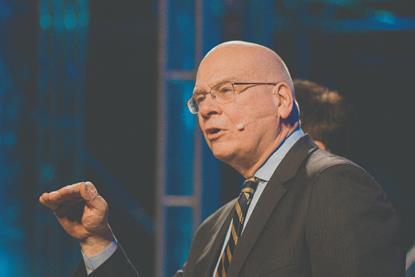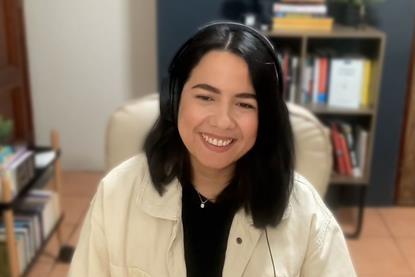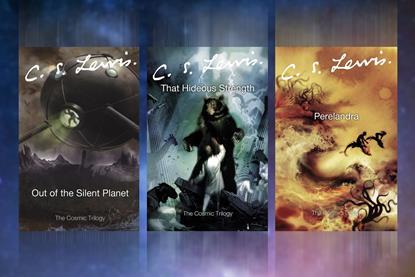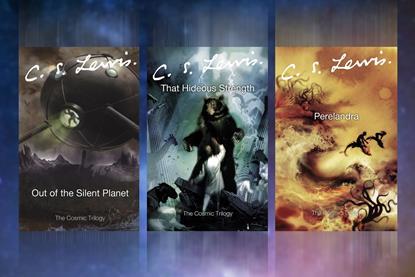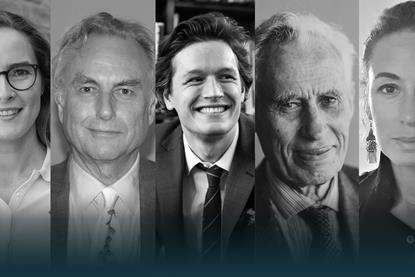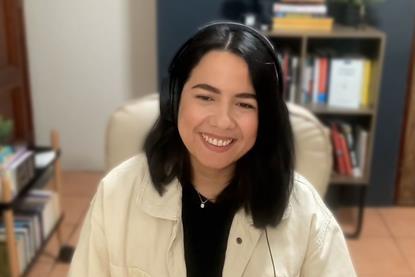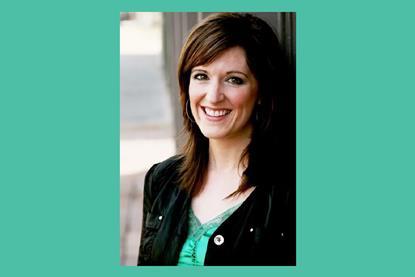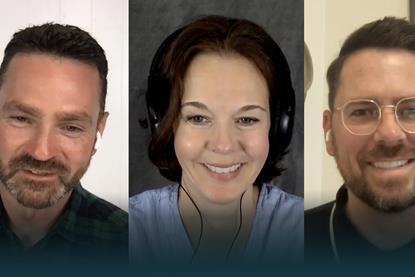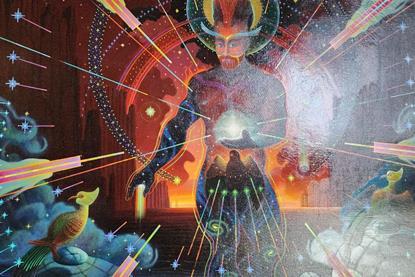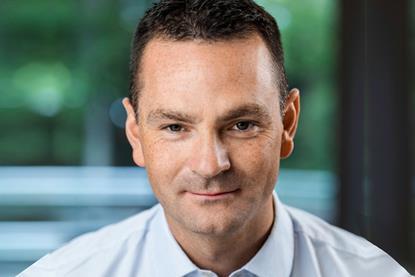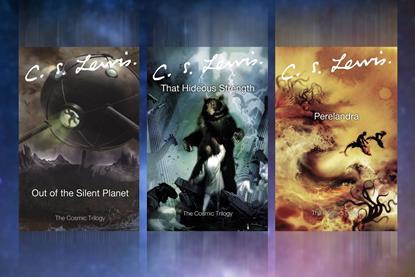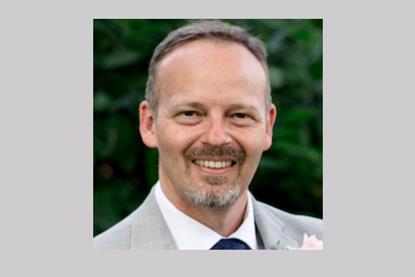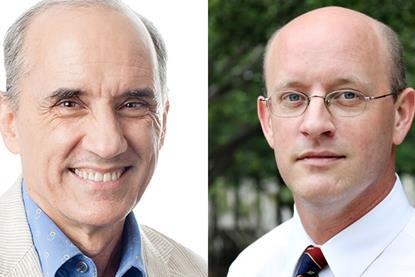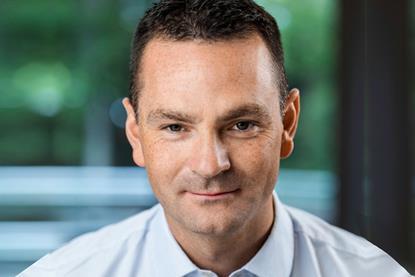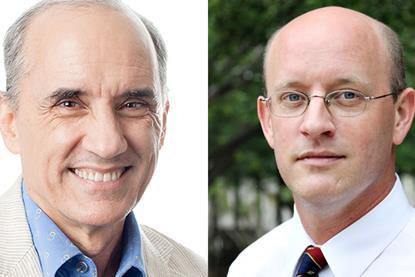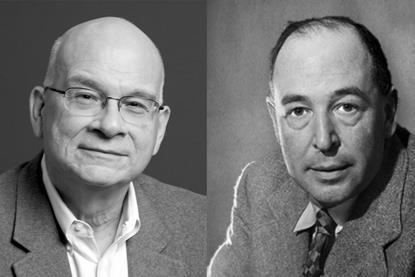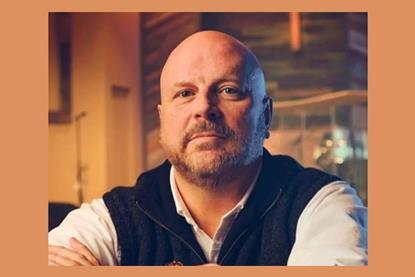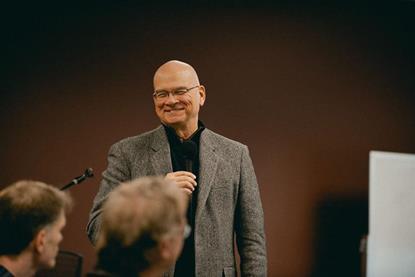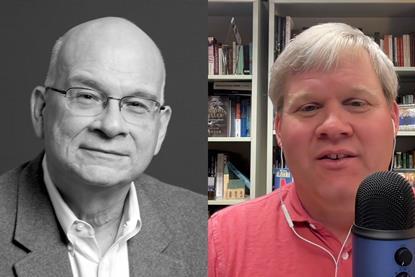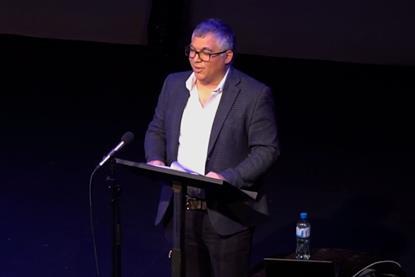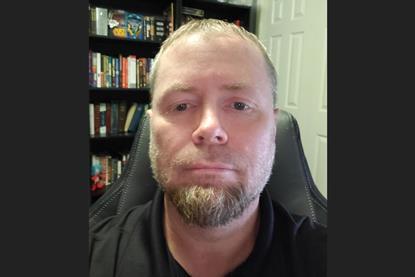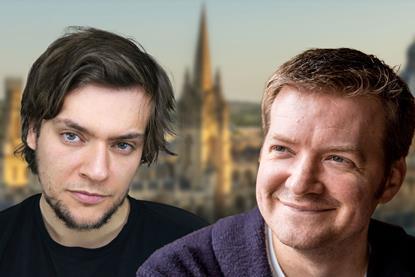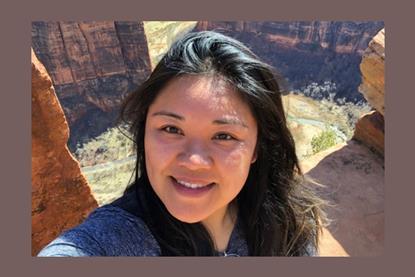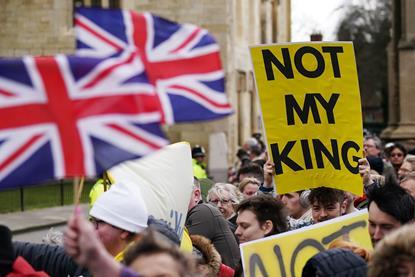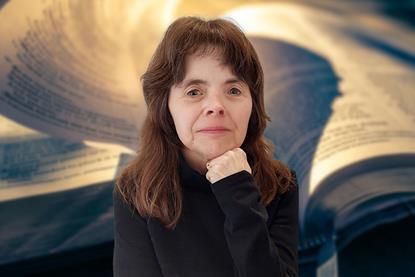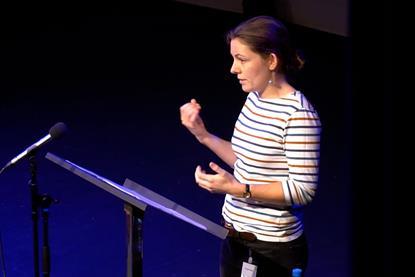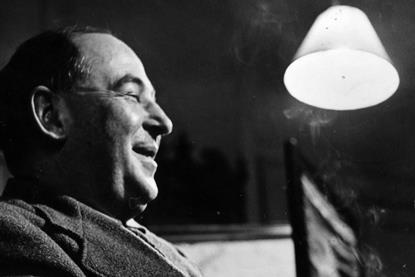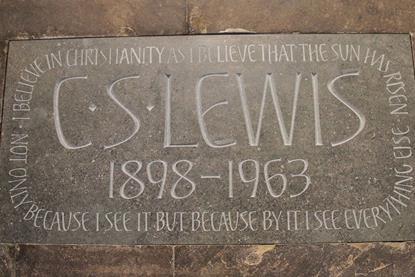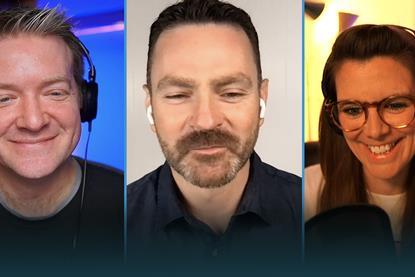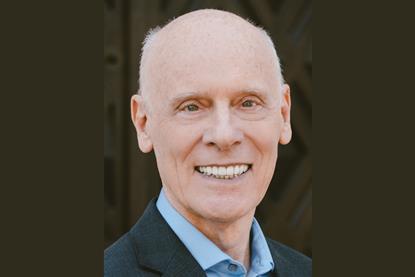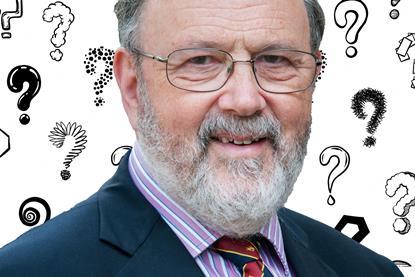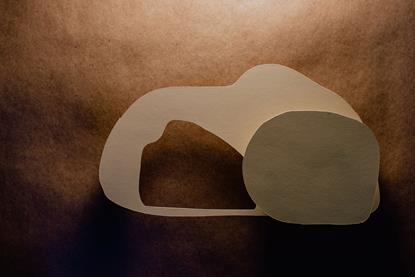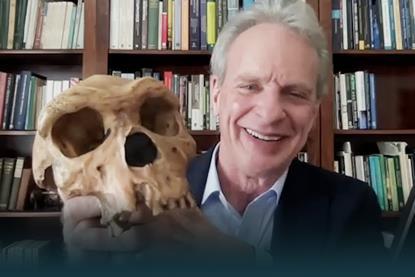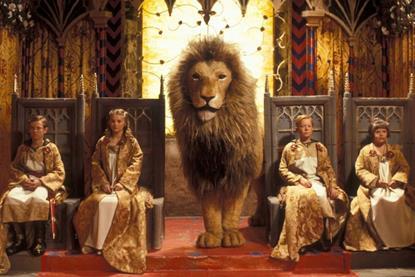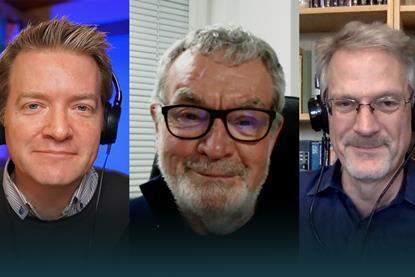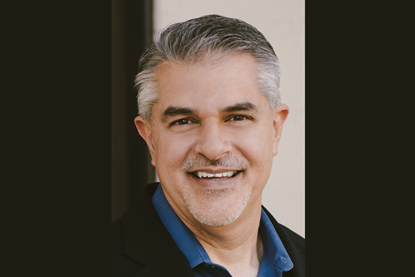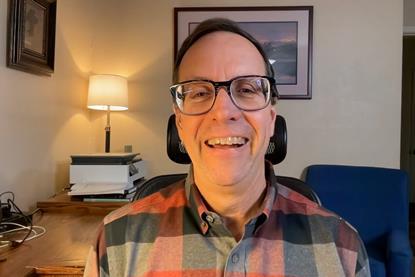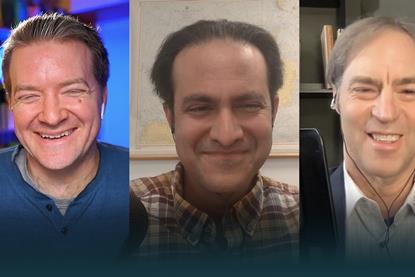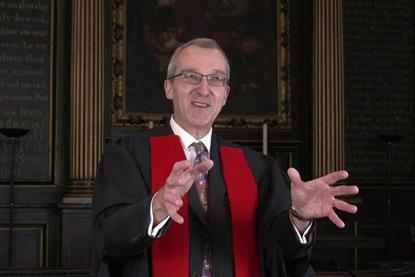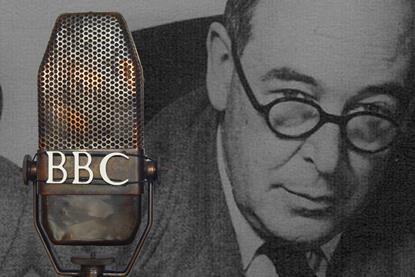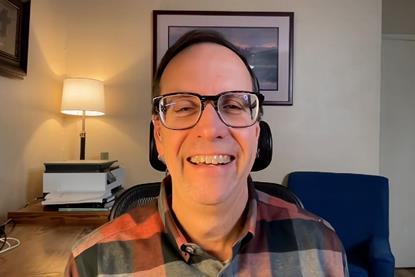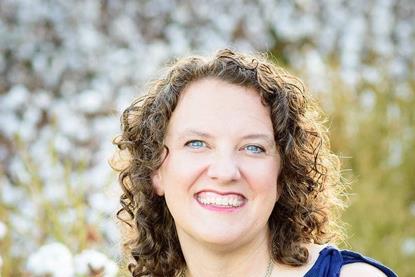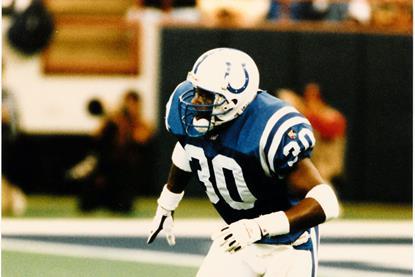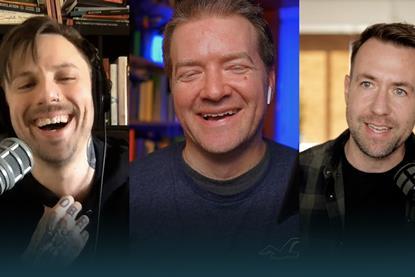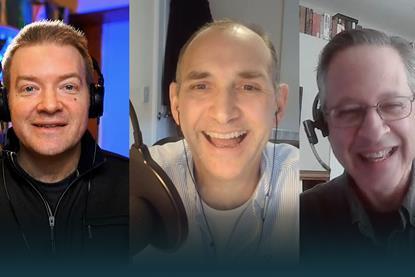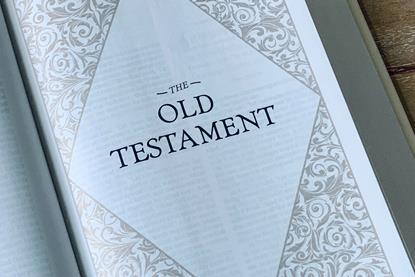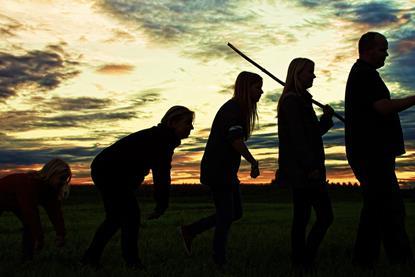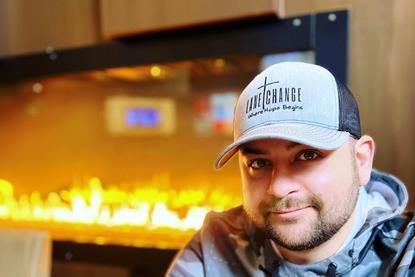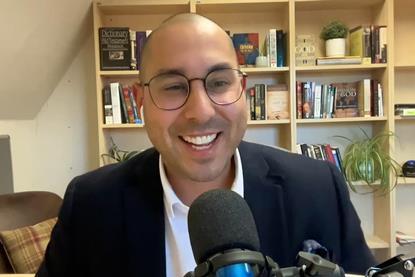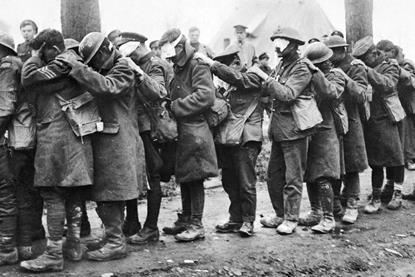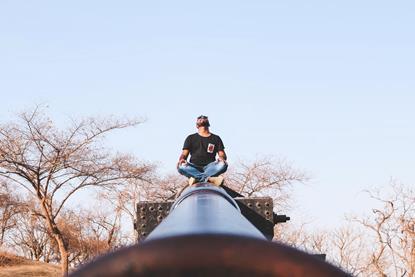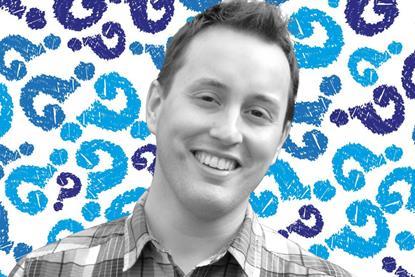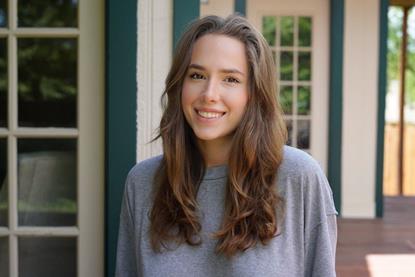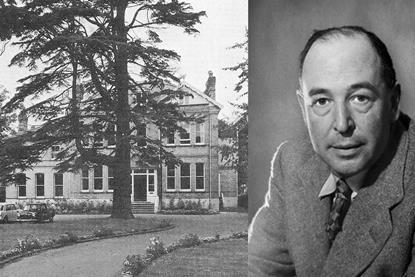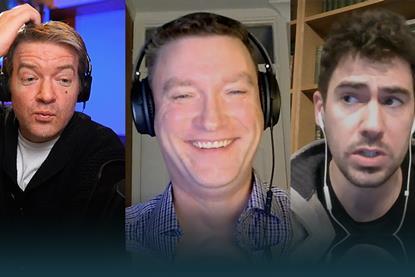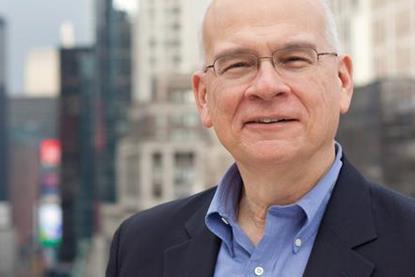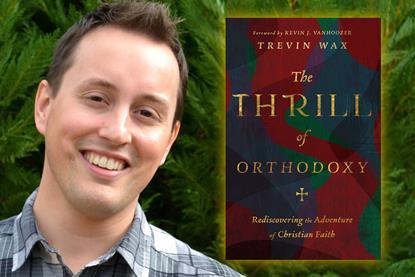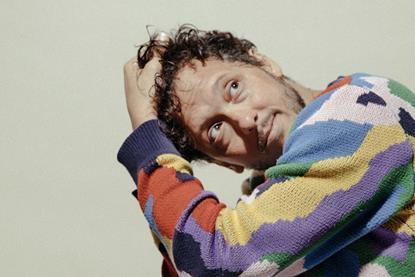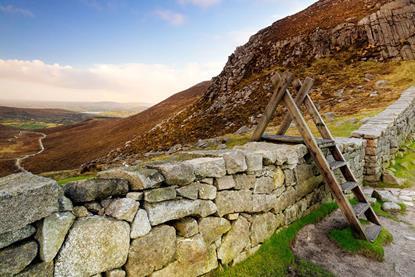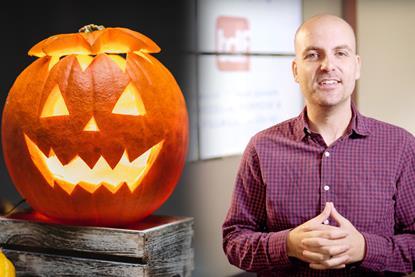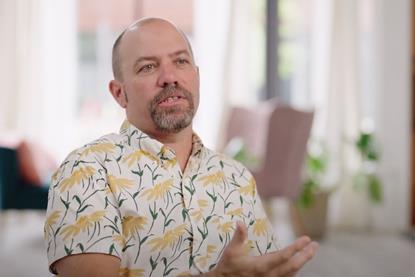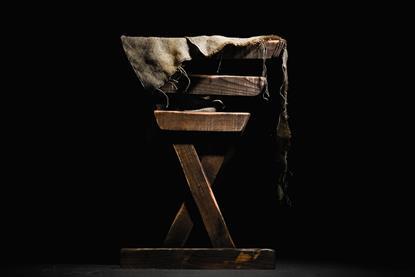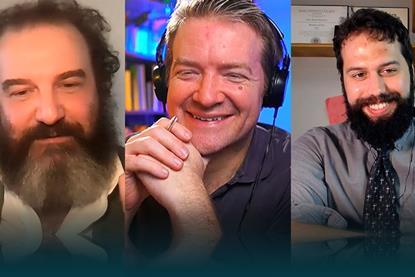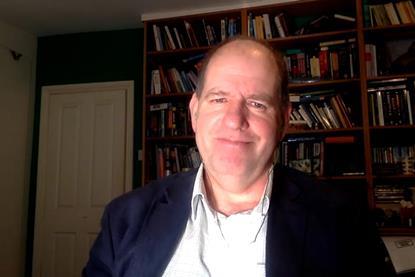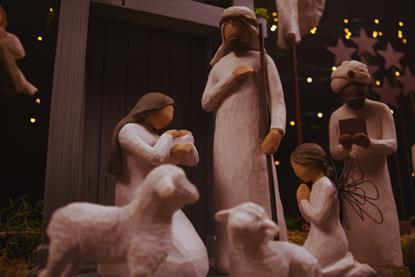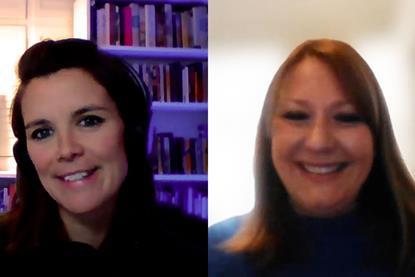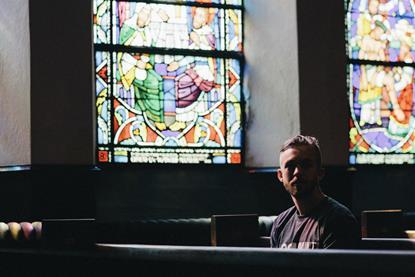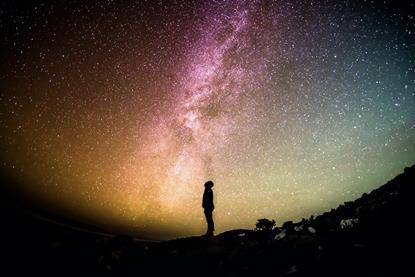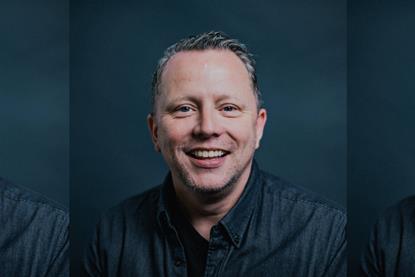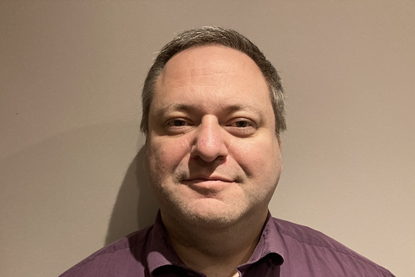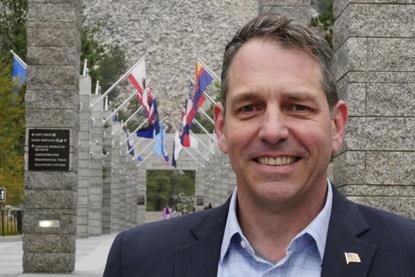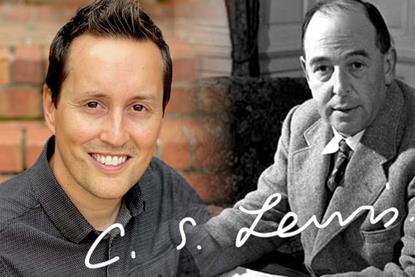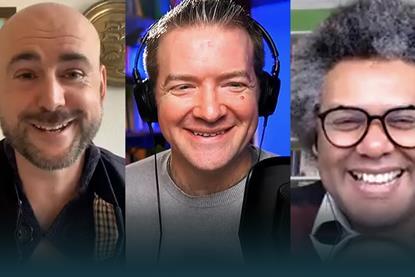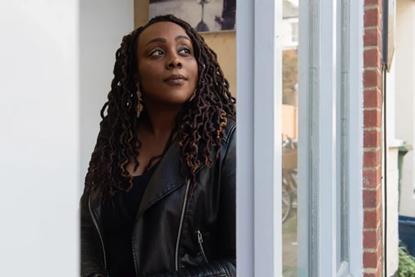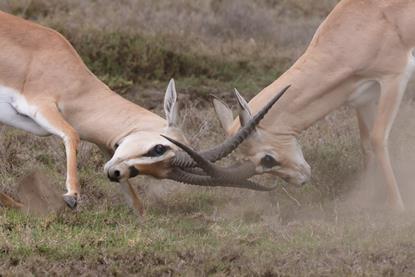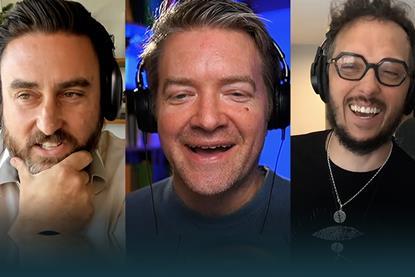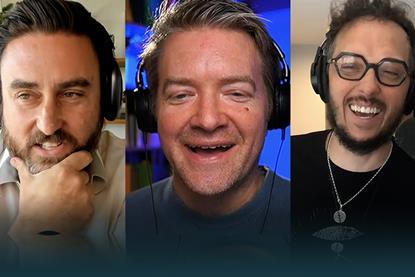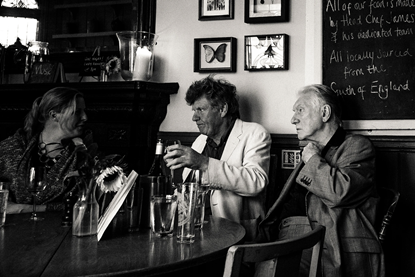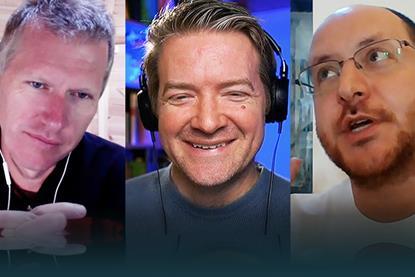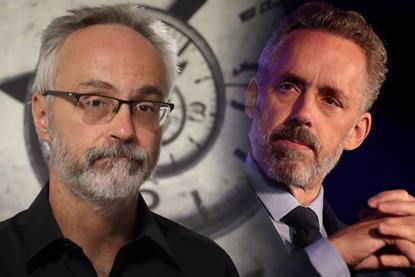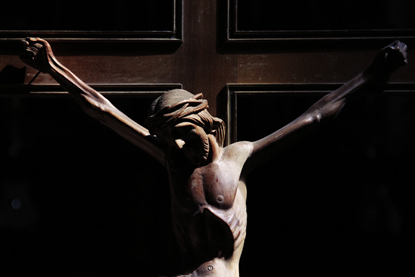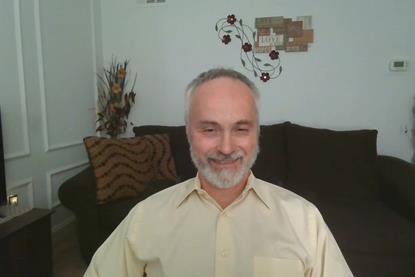Atheism
Is there a God? Finding answers to the most googled questions
Far from being just “blind faith”, there are many rational and intellectual reasons to believe in the existence of God and the truth of Christian claims. Premier Unbelievable takes a quick tour through the archives to unearth some of the key arguments
Is God Dead? The intersection of Nietzsche’s nihilism and the limits for pursuing justice
Apologist Adam Coleman considers a famous exchange between two great abolitionists, and the meaning and purpose that God gives us
Do Christian believers in evolution miss the most important arguments?
Erik Strandness reflects on a debate between a Christian evolutionist and an atheist, and wishes some more intelligent designs were acknowledged
Dawkins the Apologist
Erik Strandness shares his reflections on the failures of ‘New Atheism’ and how the movement inspired many to return to the faith
The richer meaning within a Christian vision for the future
Erik Strandness argues that the flaws of a materialistic, secular worldview do not offer hope or meaning when compared to theism
Repeated failing a polygraph test led a physics academic to God
In this discussion on whether there is conflict between religion and science, both parties are most interested in moral debates
Was the Universe designed for us?
Two teleological arguments for God summarised and explained
A military man finds God: the story of Jon Wilke
This soldier was reading the Bible for fun, but it led to serious soul-searching and heartfelt prayer
The CS Lewis Podcast #184 Dan Barker and Carolyn Weber: Are Lewis’ arguments flawed?
In the second part of Dan Barker and Dr Carolyn Weber’s discussion about CS Lewis’ relevance, Dan points out some of the holes he perceives in Lewis’ beliefs. On the opposite side of the debate, Carolyn shares how she became a Christian, highlighting elements of her story that echo Lewis’ own and looking at how Lewis’ writing greatly influenced her decision.
The Divine Debate: Is Morality Rooted in God? Atheist Stephen Law vs Matthew Su hosted by Ruth Jackson
Is faith necessary for a moral life? Is belief in God essential for a meaningful moral framework, or can secular philosophy provide all the answers? This week on Unbelievable?, host Ruth Jackson welcomes two dynamic thinkers to explore the profound debate of God’s role in our moral universe.
The CS Lewis Podcast #183 Dan Barker and Carolyn Weber: Is CS Lewis still relevant?
On November 22nd 1963, Clive Staples Lewis – Jack to his friends – died in Oxford, England. However, 61 years after his death, is CS Lewis still relevant? We hear from former pastor-turned atheist, Dan Barker, who suggests that many of Lewis’ arguments are fundamentally flawed. Literature professor, Dr Carolyn Weber, highlights where she disagrees with Dan and shares some of her story about coming to faith at Oxford University, in part through CS Lewis.
Christopher Hitchens was a ‘heretic’ of the New Atheist cause
Contrary to perception and to the opinions of many of his fellow atheists, the late writer perceived aspects of religion to be positive and did not want it to be eradicated – just sidelined
The Great Morality Debate: Secularism vs. Christianity with Dr Michael Shermer and Rev. Glen Scrivener
This week on Premier Unbelievable?, we tackle one of the most fundamental questions in philosophy:
When I was an atheist I made fun of Christian kids at school - now I ring them up to apologise
Harry Howard tells Premier Unbelievable how a surprising school lesson changed his mind about God, and why the church should try reaching young people with ancient forms of worship.
Who are the ‘New Atheists’ and are they right about God?
What caused the once-popular movement of militant atheists to develop, and are they correct to say that belief in God is dangerous and rational science is the answer?
Free Will vs. Determinism: Who’s Really in Control?Alex O’Connor vs Prof Alex Carter hosted by Ruth Jackson
Are we the masters of our fate or just dancing to the universe’s tune? 🤔 This week on Premier Unbelievable, Ruth Jackson moderates a gripping debate on one of philosophy’s oldest questions: Do we truly have free will?
Atheism and the ignorance of science
Clinical Academic Ken Miles considers whether greater scientific knowledge could lead to a rejection of scientific atheism
The CS Lewis Podcast #169 James Emery White: Culture, translation and COVID-19
How did CS Lewis translate Christianity for ordinary people? What would he say to our post-Christian culture? Can Lewis help with evangelism? In what ways did people apply his ideas to the COVID-19 pandemic? Pastor, author and theologian Dr James Emery White explores how we can draw on Lewis in our modern context.
There’s a brand new argument for the existence of God: here’s a simple(ish!) explanation of the ‘problem of psychophysical harmony’.
Theism has been a hot topic in philosophy in recent years, and many academics now say there are very good arguments for the existence of God on the table.
Unapologetic #111: Johan Erasmus: Is there more to life than atheism?
Afrikaner pastor Johan Erasmus shares the second half of his story. Why did the New Atheists’ arguments lose their appeal? How did the Bible become less embarrassing? Where does he turn with his doubts? In what ways does Johan’s faith inform his passion for racial reconciliation? Read more in Coming To Faith Through Dawkins.
The CS Lewis Podcast #164 Johan Erasmus: Coming to faith via Dawkins and Lewis
Following the death of his father as a child, Afrikaner pastor Johan Erasmus struggled to find a place where he could ask sceptical questions about faith, God and the Universe. During this time he discovered CS Lewis, but also Richard Dawkins, Sam Harris and Christopher Hitchens.
Unapologetic #110 Johan Erasmus: Were the New Atheists right?
Following the death of his father as a child, Afrikaner pastor Johan Erasmus struggled to find a place where he could ask sceptical questions about faith, God and the Universe. During this time he discovered CS Lewis, but also Richard Dawkins, Sam Harris and Christopher Hitchens.
The CS Lewis Podcast #163 Matthew Brown: What would Sigmund Freud and CS Lewis discuss?
Hollywood director Matthew Brown, who directed and co-wrote Freud’s Last Session, shares his thoughts on two of the greatest minds of the 20th Century.
Women in apologetics – Not God’s type
Holly Ordway’s move from atheism to Christianity is reminiscent of CS Lewis’ conversion. Here, apologist Joel Furches tells her story and explores why she believes women play a crucial role in apologetics
The CS Lewis Podcast #162 Alister McGrath: Is there still a place for Lewis in today’s society?
We continue our conversation with Professor Alister McGrath answering live questions, including who influenced Lewis’ faith journey, whether there’s an expiry date on his relevance and how Lewis has impacted Alister’s own theology.
Can we have virtue without god?
Erik Strandness looks at where virtue comes from, exploring an Unbelievable show on the topic with atheist philosopher Julian Baggini and Christian author Dominic Done
Has religion ‘led us into all kinds of horror’ as actor Brian Cox argues?
Neonatal consultant Erik Strandness examines some of the comments Scottish actor Brian Cox recently made about God, the Bible and Christianity
Is atheism rational? How a physicalist atheist discovered Christianity
Mason Jones was convinced there was no phenomena that could not be explained apart from what’s physically observable. Here, researcher Jana Harmon described how Mason grew unsatisfied with the limitations of his atheism and discovered the rationality of a Christian worldview
Goodbye to my friend Daniel Dennett 🫶: one of the 4 horsemen of New Atheism
Apologist Alycia Wood shares her personal reflections on Professor Daniel Dennett (1942-2024) following his death in April
Is atheism enough? How a militant atheist discovered Jesus in the military
Researcher Jana Harmon shares the fascinating story of how atheist Kyle Keltz began his journey towards Christianity while on guard duty in the Middle East
Unbelievable? Is there as much reason to believe in an evil God as a good God? Max Baker-Hytch vs Asha Lancaster-Thomas hosted by Vince Vitale
In the discussion on the plausibility of an all-evil God versus an all-good God, Dr. Max Baker-Hytch delivered a compelling argument that encapsulated the essence of the debate. He highlighted the inherent scepticism that arises when considering the ‘evil God’ hypothesis, pointing out that if such a malevolent deity were to exist, it would provide ample reason to doubt the reliability of our cognitive faculties.
Atheism’s limits: How a sceptical neuroscientist rediscovered Jesus
Researcher Jana Harmon shares how neuroscientist Dr Rich Suplita found his New Atheism wanting, prompting him to look for answers in Christianity
Ask NT Wright Anything #206 How do I share my faith with my New Age, Muslim and Atheist Friends? (Classic)
What happens to those who don’t believe in Jesus? What can I say to my New Age sister? My Muslim friend gets so much comfort from her faith… do I need to evangelise her? These and more listener questions get addressed by Tom Wright in this episode.
Unapologetic #91 Michael Lloyd: Where does our value come from?
Rev Dr Michael Lloyd, co-author of Image Bearers, explores how the image of God shapes our understanding of what it is to be human. Is secular psychology sufficient? Why is restoration necessary? How does community help? Why is diversity so important?
The CS Lewis Podcast #144 That Hideous Strength: What would a godless world look like?
Alister McGrath continues to discuss the final book of CS Lewis’ science fiction trilogy. What are Lewis’ thoughts on education? Was he anti-modern? Does the abolition of God necessarily lead to the abolition of humanity?
Why Christianity is the best foundation for a better future
Younger generations hunger for a better world. Christian speaker Sara Stevenson, in a recent Premier Unbelievable podcast, argues that this goal is best understood using the truth of the Christian worldview
The CS Lewis Podcast #143 That Hideous Strength: Is technology dangerous?
Alister McGrath explores how CS Lewis addresses the perceived conflict between God and science. What insights can Lewis give about pertinent issues such as the atomic age, eugenics and Artificial Intelligence? When does technology becomes technocracy and why was Tolkien so anti tech? What are some of the ways religion is being challenged and how does Lewis expose these critiques?
How should we engage with people who are deconstructing?
Whose fault is it when people deconstruct? What can we do about it? How do we help them to move forward? Erik Strandness reflects on deconstruction and reconstruction following an Unbelievable show on this topic
Making sense of reality: How an atheist philosopher discovered Jesus via paganism
The horrific terror attack of 9/11 cemented in Patrick Flynn’s mind that religion was not only untrue and irrelevant, but also troublesome. Jana Harmon explores how rigorous study and existential questions led Pat to change his mind
Why Christianity could trend in 2024
As we embark on a new year, author Drew Cordell reflects on the relevance of God in Western society
Unapologetic #86 Andrew Gosler: Why the neo-Darwinian framing of evolution is profoundly flawed
Rev Andrew Gosler, professor of Ethno-ornithology at Oxford University, highlights some of the deficiencies he sees in Richard Dawkins’ work. He also shares the potential limitations and dangers of a neo-Darwinian framing of evolution, such as racism and eugenics.
The birth of Jesus: Historical fact or hidden agenda?
Writer Steve Schramm explores whether the Nativity story can be trusted
Is it time for Christians to ditch Christmas?
Author Drew Cordell ponders what it might mean for those who believe “Jesus is the reason for the season” to abandon 25th December all together
Alex O’Connor and Ben Shapiro: Do we need God to be good?
Erik Strandness reflects on a recent Big Conversation discussion asking whether religion is good or bad for society
Did CS Lewis like Christmas?
Professor Alister McGrath shares his thoughts about how Lewis perceived the festive season and what we can learn from him
The CS Lewis Podcast #135 David Bates: What did Christmas mean to Lewis?
David Bates from Pints With Jack shares some of CS Lewis’ thoughts about Christmas. What are some of his key works that elucidate this topic? Did the festive period lose its significance when Lewis became an atheist? Plus, we catch up on how the inaugural CS Lewis Reading Day went last month.
Did life begin in an instant of pure chance? - a complaint to the BBC
Retired vicar Graham Buttanshaw wrote to the BBC to complain about some of the assumptions made in their Earth series
The CS Lewis Podcast: #134 Alister McGrath: Is there an expiry date on Lewis’ relevance?
In the final part of their discussion on whether CS Lewis is still relevant 60 years after his death, Professor Alister McGrath and Ruth Jackson ponder whether he also appeals to agnostics, atheists and those of other religions. Plus, is there a modern-day CS Lewis? Where should someone start if they are engaging with Lewis for the first time? And will Lewis ever cease to be relevant?
Unbelievable? Is religion good or bad for society? Ben Shapiro v Alex O’Connor The Big Conversation – Episode 7 | Season 5
In this bonus episode of The Big Conversation’ formidable Daily Wire host and renowned political thinker Ben Shapiro goes head-to-head with Oxford graduate of philosophy and theology, now international public speaker and debater, Alex O’Connor. Hosted by Andy Kind, Shapiro and O’Connor debate Is religion good or bad for society? What is the concept of free will? Does it even exist? What about the idea of the self, and the foundations of morality in society, and do we all have to agree on them?
Why we must change the way we do mission
Charity worker Simon Foulds shares why he thinks a new framework for mission is needed
Doubting towards God: How a nominal Catholic-turned atheist became a Christian apologist
Spanish musician Pedro Garcia’s atheism was profoundly shaken when he began to engage with intelligent Christians. Jana Harmon shares his story
Unapologetic #80 Bishop Arun Arora: What is Advent and why is it significant?
Bishop Arun Arora, author of the Archbishop of York’s Advent book Stick With Love, shares how a young Brummie with a Sikh dad and Hindu mum became a Christian through Billy Graham. Having been in the Church for 30 years before he saw another Asian man in Church leadership, Arun shares why he and the Archbishop of York have such a strong commitment to racial justice.
Unapologetic #79 Amy Orr-Ewing: Is there any evidence for a virgin birth?
In the final part of their discussion, Dr Amy Orr-Ewing discusses whether we can believe in a virgin birth, why this birth is significant and how we can trust the witness of Mary. Plus, why is justice important to the Christmas story? And, how can Jesus be both fully God and fully man?
The CS Lewis Podcast #132 Alister McGrath: 60 years after his death, does Lewis still speak to our heads and hearts?
On November 22nd 1963, Clive Staples Lewis – Jack to his friends – died in Oxford, England. 60 years after his death, we discuss whether he is still relevant today. Are any of the accusations levelled against Lewis legitimate? Why does he continue to speak to our rationality and imagination? Plus, Professor Alister McGrath shares the influence Lewis had on his own journey of faith.
The CS Lewis Podcast #131 David Bates: CS Lewis Reading Day
David Bates and his team at Pints With Jack have helped establish a day to celebrate CS Lewis and his work. His fellow Inkling, JRR Tolkien, already has a special reading day, but “why should the Tolkien nerds have all the fun?”! Listen in to hear why David thinks Lewis is still relevant today and how you can get involved with the inaugural CS Lewis Reading Day on Lewis’ birthday - November 29th.
Unapologetic #76 Sarah Irving-Stonebraker: How do we find meaning?
In the second part of their discussion, Sarah Irving-Stonebraker shares how she moved from atheism to agnosticism, ending up in a church. What is meaning? How do we find it? Does Christianity have anything to say to our cultural moment?
The CS Lewis Podcast #129 Dr Carolyn Weber: Surprised by Oxford
Dr Carolyn Weber, author of Surprised by Oxford, shares her fascinating story of coming to faith from atheism at Oxford University. Her journey, which mimics CS Lewis’ own in many ways, has recently been turned into a feature film. What did Lewis mean by “surprised by joy”? Why are stories so powerful? Why has Lewis so often contributed to people’s conversions?
Unapologetic #75 Sarah Irving-Stonebraker: How an atheist academic moved towards belief in God
Former atheist-turned Christian Associate Professor Sarah Irving-Stonebraker shares how studying some of the founders of modern science challenged her assumption that religion and science were fundamentally opposed. She also highlights the moment she realised her atheism could no longer sustain her moral commitments.
I don’t need God: How tragedy compelled an atheist to rethink his disbelief
Athiest Warren Prehmus had no need for God. However, when personal tragedy struck, he began to question his presuppositions and explore Christianity. Researcher Jana Harmon shares his story
Is there a rebirth of belief in God?
Erik Strandness reviews Justin Brierley’s new book
Christians in science: Why an astronomer believes the Bible is reliable
Apologist Joel Furches interviewed astronomer Dr Hugh Ross about science and his belief in God
Is Western culture eroding Christianity?
Sam Reimer, professor of sociology and author of Caught in the Current, explores how authority, belief and behaviour have changed over the years and the impact this has had on faith
Unapologetic #73 Peter Byrom: Dawkins’ argument from complexity
In the final part of their discussion, Peter Byrom delves into Dawkins’ argument from complexity, suggesting it may be a circular assumption. They unpack Dawkins’ fascinating exchange with Francis Collins in 2022, where Dawkins admits he may have a presupposition towards materialism. Plus, what does the future hold?
Discovering purpose: An engineer's evolution from atheism to a life filled with meaning
Apologist Jana Harmon shares the story of Neil Placer, who discovered the Christian faith via years of atheism
Bennu the asteroid: Why does the Universe exist and why should we care?
Nasa’s Osiris-Rex returned from a seven-year mission with asteroid Bennu’s dust, aiming to shed light on the Universe’s formation. Erik Strandness examines the project’s theological and philosophical impacts.
Unapologetic #72 Peter Byrom: Disillusioned with Dawkins
Peter Byrom continues to share his faith journey as told in the chapter he contributed to Coming to Faith Through Dawkins. He discloses how challenging Richard Dawkins on why he wouldn’t debate William Lane Craig led to him becoming something of a YouTube sensation! Peter also shares why he believes apologetics is important and what the final nail in his atheist coffin was.
Why secular sceptic Nir Eyal thinks we need Church
Theology student David MacPherson reflects on a recent episode of The Diary of a CEO, where Nir Eyal discussed the benefits of church and a worshipping community
Unapologetic #71 Peter Byrom: Discovering Dawkins
In the first episode of this three-part series, Peter Byrom shares his fascinating story as told in the chapter he contributed to Coming to Faith Through Dawkins. He outlines how he encountered the apologist William Lane Craig via the New Atheists and discusses his growing disillusionment with Dawkins’ “devastating” argument from complexity.
Does deconstruction signal the death of faith?
Erik Strandness reflects on deconstruction and reconstruction following an Unbelievable show on this topic
Unapologetic #70 Phil Knox: Dealing with objections
Why do many people deem religion irrelevant? What are some of the biggest objections to belief in God? Why are droves of young people leaving the Church? Evangelist Phil Knox shares some of his thoughts about these big topics and gives some tips on how to share your faith effectively.
Unbelievable? Coming to faith through Dawkins - Part 2: Is there a new New Atheism? Alister McGrath & Alex O’Connor
In the second part of their discussion based on the book Coming to Faith Through Dawkins, theologian Alister McGrath and YouTuber Alex O’Connor discuss where we may be heading in regards to religion and atheism.
Unapologetic #69 Phil Knox: Does evangelism matter?
Evangelist Phil Knox, author of Story Bearer and The Best of Friends, shares some of his story with Ruth Jackson, speaking about the impact of his dad’s death at a young age. Plus, they discuss why evangelism matters and how we can share our story and be a “good news person in a bad news world”.
Unapologetic #68 Andy Bannister: Do Muslims and Christians worship the same God?
A Christian street preacher who was arrested for alleged hate speech, which included criticising Muhammad, was found not guilty following a recent court hearing. Dr Andy Bannister, director of Solas and author of Do Christians and Muslims worship the same God?, responds to some of the accusations made by the preacher (eg Muhammad married a 6-year-old and had sex with her when she was 9) and discusses how we can engage with some of these big questions.
Is there more to life than mere matter?
Dr Erik Strandness explores the relationship between the soul, mind, brain, body and spirit following a recent Big Conversation about near death experiences
From radical atheist to Christian via rigorous intellectual study
Former atheist, Dr Stefani Ruper, was intellectually convinced of secular atheism, but found that it lacked substantive answers for her life. More than 13 years of scholarly pursuit of truth led her to choose belief in God. Jana Harmon shares her story
Unapologetic #67 Adam Coleman: 60 years on has Martin Luther King Jr’s ‘dream’ been realised?
Monday 28th August marked 60 years since the 1963 March on Washington for Jobs and Freedom, where Martin Luther King Jr delivered his iconic ‘I have a dream’ speech on the steps of the Lincoln Memorial. Adam Coleman’s grandfather was personally invited to attend the event by Dr King. Adam spoke about his grandfather’s experience and reflected on the last 60 years - how far we’ve come and how far we still have to go when it comes to racial justice.
The CS Lewis Podcast #120 Out of the Silent Planet: Weston, Devine and JRR Tolkien
As we delve into the first book of the trilogy, Out of the Silent Planet, Professor Alister McGrath looks at some of its key themes. He explores the characters of Weston and Devine, looking at whether they represent particular ideologies and how Lewis exposes issues with their worldviews. Plus, why was JRR Tolkien such a fan of the book?
Unbelievable? Richard Dawkins & Francis Collins Debate (Replay) + Clash with Richard Swinburne + New Big Conversation Episodes Reveal!
We revisit a riveting dialogue from Season 4 of The Big Conversation, from 2022.
It is time to move on from Richard Dawkins
Following a recent Unbelievable? featuring Richard Dawkins, author Dr Peter Harris shares his thoughts about the infamous atheist
What is a near-death experience and what can it teach us?
Following a recent Big Conversation, journalist Heather Tomlinson explores near-death experiences
Remembering Tim Keller: Death has lost its sting
Entrepreneur Max Anderson shares his final reflections on the great Tim Keller who influenced his life in a deeply profound way
The CS Lewis Podcast #118 Evil, evolution and theological reflection in The Space Trilogy
Alister McGrath explores some of the theological themes within Lewis’ trilogy, such as incarnation, atonement and the problem of evil. How did Lewis view the relationship between science and religion? What did he think about evolution? How did he critique certain worldviews through his fiction?
Remembering Tim Keller: How our daily work has an eternal value
Entrepreneur Max Anderson reflects on his New York pastor and friend’s teaching on work
Remembering Tim Keller: The purpose of marriage
Entrepreneur Max Anderson reflects on his New York pastor and friend’s teaching on marriage
Remembering Tim Keller: The heart is an idol factory
Entrepreneur Max Anderson reflects on his New York pastor and friend’s teaching on idolatry
Remembering Tim Keller: Jesus’ teachings only matter if the resurrection is real
Entrepreneur Max Anderson reflects on his New York pastor and friend’s apologetic teaching
Remembering Tim Keller: Religious people may be just as lost as the irreligious (maybe more)
Entrepreneur Max Anderson reflects on his New York pastor and friend’s teaching on the Prodigal Son
Remembering Tim Keller
Entrepreneur Max Anderson reflects on the many things he’s learnt from his New York pastor and friend
Unapologetic #64 Ana Ávila: Has science disproved religion?
Ruth Jackson continues her conversation with Mexican writer Ana Ávila who studied clinical biochemistry. Why is there a perceived conflict between science and religion? Does science contradict the Bible? Can you prove there is a God?
The CS Lewis Podcast #117 Vivisection, mental health, racism and sexism
We dive into some of the important issues explored in Lewis’ Space Trilogy. Why was he so vehemently opposed to animal experimentation? What would Lewis say to those experiencing mental health struggles today? Plus, Alister McGrath responds to the accusation that CS Lewis was sexist and racist.
Are we more than just our brains?
Following a recent Big Conversation, Dr Erik Strandness explores the relationship between the brain and mind, near death experiences, the existence of the soul and the perceived conflict between religion and science
Sex, drugs and rock ‘n’ roll: Why CS Lewis’ Space Trilogy is still relevant
The CS Lewis podcast recently launched a new series focussing on one of Lewis’ lesser known works of fiction, his Space Trilogy. Here, Ruth Jackson shares why she and Professor Alister McGrath think the books are worth a read, despite their length and difficulty
Unbelievable? The Mystery of Existence: Why is there something rather than nothing? Part 1 with Richard Dawkins, Jessica Frazier, Silvia Jonas, Richard Swinburne and Jack Symes
Unravel the greatest mystery of all, ‘Why is there something rather than nothing?’, in Premier Unbelievable’s riveting two-part show ‘The Mystery of Existence’.
Unapologetic #63 Ana Ávila: Faith, questions and apologetics in Latin America
Mexican writer Ana Ávila, who lives in Guatemala, shares her insights into religion in Latin America. How do we probe our beliefs? What does evangelism look like in a nominally Christian culture? How is apologetics received in some of these countries and what are the big questions being asked?
Women in apologetics: Overcoming sexism, societal expectation and vicious online attacks
Former non-theist Mary Jo Sharp found answers to many of her questions through Christian apologetics. She is now passionate about sharing this with others, despite the great personal cost at times. She shares some of her story with Joel Furches here
Unbelievable? Should we deconstruct or reconstruct? with Olivia Jackson, Preston Ulmer and Vince Vitale.
Unbelievable takes on the often-misunderstood topic of deconstruction in the sense of deconstructing Christian faith or becoming exvangelical is another phrase you might have come across.
What does it mean to be human?
Are science and religion in conflict? Is there more to life than mere matter? Where do we find meaning? Erik Strandness explores these big questions in light of a recent Big Conversation with atheist Philip Ball and Christian Nick Spencer
What is Hinduism and how does it differ from Christianity?
Apologist Joel Furches explores the evolution of religion, focussing on the most ancient religion still practised today
Unapologetic #61 Vince Vitale: Why does God allow suffering and how can I cope?
Philosopher Dr Vince Vitale presents some of his PhD research around evil, suffering and theodicy. He and Ruth Jackson share their own experiences of suffering miscarriages, demonstrating that this is not just a theoretical question of why there is pain, but a deeply practical one of how we are to deal with this agony.
The CS Lewis Podcast #114 An introduction to The Space Trilogy
Many people don’t even realise CS Lewis wrote science fiction, much less have perused these three colossal volumes. So, why read them? In the first episode of our brand new series on Lewis’ Space Trilogy, Professor Alister McGrath looks at when and why Out of the Silent Planet, Perelandra and That Hideous Strength were created and how they can impact our lives today.
Conversion, deconstruction and reconversion: How an ex-Christian rediscovered faith through exploring life’s big questions
Jim Thring was a Christian for 15 years before losing his faith and becoming a humanist atheist. He rediscovered his Christian faith years later through apologetics. Jana Harmon shares some of Jim’s story here
The CS Lewis Podcast #113 What about other religions?
In the final part of this replay of an Unbelievable show, originally broadcast in October 2010, Justin Brierley speaks to Lewis scholar Dr Michael Ward and former Christian-turned atheist Dan Barker. Here, they continue to discuss CS Lewis’ apologetics and hone in on what Lewis says about other religions.
Why is Thor not happy?
Author Mark Roques explores ideas about science, religion and the Enlightenment through this thought-provoking and entertaining interview with the Norse god
Unapologetic #59 Vince Vitale: From scepticism to Christian apologist
Ruth Jackson speaks to Dr Vince Vitale, one of the new guest hosts of Premier Unbelievable?, about his journey from scepticism to Christianity while studying philosophy at Princeton University.
Unapologetic #58 Collin Hansen: Does anyone care about apologetics?
Are people even asking questions? If so, are those questions dramatically different from what they used to be? How should we respond to our rapidly changing culture? Collin Hansen, executive director of the The Keller Center for Cultural Apologetics, looks at some important questions around cultural apologetics and draws on the wisdom of Tim Keller (1950-2023).
The CS Lewis Podcast #110 An atheist and Christian reflect on CS Lewis’ apologetics
60 years after his death people continue to read, use and quote CS Lewis’ apologetics works. In this replay of an Unbelievable show, originally broadcast in October 2010, Justin Brierley speaks to Lewis scholar Dr Michael Ward and former Christian-turned atheist Dan Barker. Here, they discuss Lewis’ arguments, focussing particularly on his Natural Law argument for God in ‘Mere Christianity’.
Unapologetic #56 Collin Hansen: Tim Keller (1950-2023) - A pastor to sceptics
In the third part of our discussion with Collin Hansen, author of ’Timothy Keller: His Spiritual and Intellectual Formation’, we focus on Keller’s ministry in New York and beyond. Hansen also shares what Keller would want to say to the global Church and speculates on his lasting legacy.
The CS Lewis Podcast #108 Tim Keller (1950-2023) on CS Lewis
In this special episode following the death of Tim Keller on Friday 19th May, Ruth Jackson speaks to Collin Hansen, author of ’Timothy Keller: His Spiritual and Intellectual Formation’. They talk about Keller’s love for CS Lewis and reveal some fascinating stories about Kathy Keller, Tim’s wife, who was one of the last people to correspond with Lewis before his death.
Riches to rags: How a millionaire lost nearly everything, but found God
Former atheist Stu Fuhlendorf felt no need for God, achieving high level of success and power in the business world. However, his achievements were tainted by emptiness and addiction, which helped him become open to his need for God. Jana Harmon shares his story
Unapologetic #55 Collin Hansen: Tim Keller (1950-2023) on women, family life and homosexuality
We continue our conversation with Collin Hansen, author of ’Timothy Keller: His Spiritual and Intellectual Formation’, who highlights some of the key women in Keller’s life, particularly his wife Kathy. Hansen explains why Tim Keller was a complementarian and speaks about Keller’s brother, Billy, who died from AIDS in the 1990s.
Unapologetic #54 Collin Hansen: Remembering Tim Keller (1950-2023)
Following the death of Tim Keller on Friday 19th May, Collin Hansen, author of ’Timothy Keller: His Spiritual and Intellectual Formation’ spoke to Ruth Jackson about Tim Keller’s early life and shared some of his favourite memories of the New York apologist.
The CS Lewis Podcast #105 Dr David Clare: The man from God knows where - Lewis’ Irishness
Drama and theatre studies lecturer Dr David Clare explores four plays about Lewis that downplay his Ulster background. This talk was originally given at a CS Lewis symposium called Now We Have Faces, which was hosted by The CS Lewis Group at Ulster University in coordination with English at Ulster. The title of David’s presentation was ‘“The man from God knows where”: Four plays about CS Lewis in which his Belfast background is ignored or downplayed’.
Free at last: How an atheist addict was healed from addiction and suicidal thoughts
From a young age, Mark Goodnight experienced great suffering, including sexual abuse, alcoholism and depression. These events caused him to doubt God. As his life spiralled out of control, Mark reached out to the God he didn’t believe in and began to experience healing and restoration
Unbelievable? Is it Rational to be a Christian? - Stephen Woodford vs Justin Brierley
In 2019, Justin Brierley swapped his moderator’s chair for being a debater in a live show recorded in front of a student audience at Oxford University. He engaged atheist Stephen Woodford who runs the YouTube channel Rationality Rules on the question ‘Is it rational to be a Christian?’
Women in apologetics: How a biology major who struggled to share her faith became an apologist
Jane Pantig, who works for Ratio Christi, loves her unique platform as a Filipino-American woman. Apologist Joel Furches shares some of her story here
Is atheism just a ‘lack of belief’ in God?
Apologist Joel Furches explores various definitions of “atheism” and the consequent impact of these
Why I’m an atheist anti-monarchist
Alex O’Connor, also known as Cosmic Skeptic, shares his thoughts about the forthcoming coronation of King Charles III
Unapologetic #51 Lydia McGrew: Who is the true Jesus?
In the final part of her discussion with Ruth Jackson, Dr Lydia McGrew, an analytic philosopher and author of Testimonies to the Truth: Why you can Trust the Gospels, unpacks some of the more disconcerting elements of Jesus’ character and looks at how this impacts the veracity of the Gospel accounts. She also addresses how the loneliness and suffering of Jesus can speak to a hurting world.
Death to deconstruction: Can exvangelicals ever reconstruct their faith?
Erik Strandness reflects on an Unbelievable? discussion between punk singer-turned-pastor Josh Porter and former-Christian Jon Steingard, exploring why numerous young American evangelicals lose their faith and whether they’re ever able to get it back
The CS Lewis Podcast #103 Dr Sarah Waters: Out of the Silent Planet and the Covid pandemic
English lecturer Dr Sarah Waters shares her insights into one of CS Lewis’ science fiction books, particularly in regards to how we relate to one another post-Covid. This talk was originally given at a CS Lewis symposium called Now We Have Faces, which was hosted by The CS Lewis Group at Ulster University in coordination with English at Ulster. The title of Sarah’s presentation was ’Facial (mis)recognition: Out of the Silent Planet and the boundaries of face-to face’.
The CS Lewis Podcast #102 Alister McGrath: The CS Lewis phenomenon
In the final episode of our series focussing on McGrath’s book, CS Lewis: A Life, we look at why someone who expected to be forgotten within five years of his death has had such a lasting impact. Why is CS Lewis still so popular and how long will his appeal last? Plus, this is your last chance to register for the opportunity to win a copy of McGrath’s seminal biography of Lewis.
The CS Lewis Podcast #101 Alister McGrath: Suffering, death and Lewis’ final years
In the 14th episode of our series focussing on McGrath’s book, CS Lewis: A Life, we look at Lewis’ deep anguish following the death of his wife, Joy Davidman, and explore his approach to suffering in A Grief Observed.
Unbelievable? Celebrating 17 years - Justin Brierley, Ruth Jackson, and Vince Vitale
The Unbelievable? show has been broadcasting for over 17 years. Justin Brierley and Ruth Jackson take a retrospective tour through highlights from the show from day one to some of the most significant debates that have been hosted, before being joined by Dr. Vince Vitale for a special announcement by Justin.
The search beyond science: How an inquisitive atheist found God through astrophysics
Analytical scientist Dr Hugh Ross had been searching for answers about the origin of the Universe since he was a child. He found them in the place he least expected – the Bible. Jana Harmon shares his story here
Ask NT Wright Anything #165 A pastor losing his faith writes in, plus more pastoral questions
In a special pastoral Q&A edition Tom responds to various questions on difficult family situations, unforgiveness and a church pastor who doesn’t know if he believes any more. Plus a musical treat from Tom. An archive show first broadcast in 2019.
Unapologetic #47 Jeremiah Johnston: The 7 best reasons to believe Jesus rose from the dead
New Testament scholar Dr Jeremiah Johnston shares ground-breaking research from his new book ’Body of Proof: The 7 Best Reasons to Believe in the Resurrection of Jesus-and Why It Matters Today’. He also explains how we can experience overwhelming hope in the midst of great suffering if Jesus really rose from the dead.
Unbelievable? Ask William Lane Craig Anything
Renowned Christian thinker William Lane Craig answers listener questions on a live edition of the show. He responds to questions on philosophy, Adam & Eve, suffering, the worst argument for God and more. Plus we hear from Jeremiah J Johnston on the 7 best reasons to believe in the resurrection.
The CS Lewis Podcast #97 Alister McGrath: The creation of Narnia
In the eleventh episode of our series focussing on McGrath’s book, CS Lewis: A Life, we hear the inspiration behind the Narnia Chronicles and look at the important role imagination played in Lewis’ work. Plus, don’t forget to register for the opportunity to win a copy of McGrath’s seminal biography of Lewis.
Unbelievable? Optimism or extinction? What’s the future of humanity? John Hands & Perry Marshall
Secular scientist and academic John Hands has been described as a ‘polymath’. His 2016 book Cosmosapiens received wide praise for its analysis of human evolution since the beginning of the universe. His new book ‘The Future of Humankind’ looks ahead to what lies in store for homosapiens.
Finding God through science – an atheist discovers chemical evolution can’t adequately explain the origin of life
Jana Harmon shares the story of Dr Fazale Rana who discovered God through his pursuit of science. His paradigm shift began when he began to find scientific explanations for the origin of life inadequate and started to look elsewhere
Unapologetic #44 Bruce Miller: Is the Bible reliable?
In this final episode, Bruce Miller, author of The 7 Big Questions: Searching for God, Truth, and Purpose, explores objections towards the Bible, including whether it is sexist, racist and out of date. Bruce also asks whether we can know and experience God personally, looking at why he doesn’t make himself more obvious.
Unbelievable? Where does order in nature and the cosmos come from? Stephen Meyer & Saleem Ali
Prof Saleem Ali of the University of Delaware is author of ‘Earthly Order: How natural laws define human life’ and describes the way order in the universe drives order in human and social settings. He engages with Dr Stephen Meyer of the Discovery Institute, whose book ‘The Return of The God Hypothesis’ makes the case that order in nature points to a divine mind.
Remembering theoretical physicist Professor Thomas McLeish (1962-2023)
Evangelist Greg Downes shares his personal reflections on his friend, the scientist and apologist Professor Thomas Charles Buckland McLeish, who died on 27th February
The CS Lewis Podcast #94 Alister McGrath: The wartime apologist
In the eighth episode of our series focussing on McGrath’s book, CS Lewis: A Life, Professor Alister McGrath shares some of Lewis’ thoughts on suffering. We also hear how and why Lewis was broadcast on BBC Radio during the Second World War and the impact this had. Plus, it’s not too late to register for the opportunity to win a copy of McGrath’s seminal biography of Lewis.
Why are we so obsessed with sex? LGBT, materialism and the revival of Epicureanism
Following the recent LGBT and the Church Unbelievable? show, author Mark Roques explores how Greek philosophy helps illuminate our understanding of sex
Unapologetic #41 Bruce Miller: Does life have a purpose?
In the first of four episodes on how to approach some of life’s most difficult questions, Ruth Jackson speaks to Bruce Miller, author of The 7 Big Questions: Searching for God, Truth, and Purpose, about belief, doubt and purpose.
Why would God allow the Turkey-Syria earthquake?
In light of the tragic Kahramanmaras earthquake, apologist Dr Sharon Dirckx shares her thoughts on how we reconcile the idea of a good and powerful God with the presence of natural disasters
Can the Gospels be trusted? The texture of testimony
Philosopher and author of Testimonies to the Truth: Why You Can Trust the Gospels, Lydia McGrew, explores some of the characteristics of testimony within the Gospel narratives
Death has lost its sting – how becoming a Christian eradicated a humanist’s overwhelming fear of dying
As an ardent atheist, Kim Endraske disliked Christians, but wrestled daily with existential dread. Jana Harmon shares Kim’s story of discovering the God who dramatically changed her life
The CS Lewis Podcast #92 Alister McGrath: The making of a Mere Christian
In the sixth episode of our series focussing on McGrath’s book CS Lewis: A Life, we explore Lewis’ faith journey, looking at how and why he became a Christian. We also hear about the significant impact of JRR Tolkien. Plus, don’t forget to register to win a copy of McGrath’s seminal biography of Lewis.
How an NFL footballer found faith through a naked teammate
As we approach this year’s Super Bowl, former NFL footballer-turned pastor, Derwin L Gray, shares his remarkable story of how he came to faith
Unbelievable? Death to Deconstruction: Josh Porter & Jon Steingard on whether exvangelicals can reconstruct their faith
Punk singer-turned-pastor Josh Porter charts his own journey of reconstructing his Christian faith in the book ‘Death to Deconstruction: Reclaiming faithfulness as an act of rebellion’. He discusses deconstruction, the Bible, the problem of evil and more with Jon Steingard, former lead singer of Hawk Nelson who underwent his own journey of deconstruction in 2020.
Help! My teenager doesn’t believe in God
Pastor Marc Lambert looks at how parents can lovingly walk alongside their children as they doubt, question and rebel against Christianity
Unbelievable? Uninvented: Are the stories of Jesus too unusual to have been made up? Mike D’Virgilio vs Matthew Taylor
‘You just can’t make this stuff up!’ That, in a nutshell is the contention of Mike D’Virgilio’s book ‘Uninvented: Why the Bible could not be made up and the evidence that proves it’. He says that the life of Jesus doesn’t read like made up stories, myths and legends.
How should Christians respond to transhumanism?
Apologists Clinton Wilcox and Joel Furches explore some of the core principles of transhumanism and their ramifications
Ask NT Wright Anything #155 Making sense of Old Testament violence
Tom responds to listener Qs on Andy Stanley ‘unhitching’ Christianity from the Old Testament, the historicity of the Exodus, and the way that Greg Boyd interprets violent portraits of God in ‘The Crucifixion Of The Warrior God’. First broadcast in 2019.
Should Christians favour creation or evolution?: 4 different perspectives
Writer Steve Schramm explores Young Earth Creationism, Old Earth Creationism, Intelligent Design and Theistic Evolution
Fighting against God – a staunch atheist encounters God after a suicide attempt
Roger Sherrer vehemently believed religion was poison. Jana Harmon shares his story of transformation here
Unapologetic #37 Alanzo Paul: a former opiate addict on how to reach young people
Originally from Canada, Alanzo Paul fell into a life of addiction after his parents’ divorce. Here, he shares some of his story with Ruth Jackson, including his reflections on working with Ravi Zacharias. He also looks at some of life’s big questions and suggests ways to reach the apathetic with the gospel.
The CS Lewis Podcast #89 Alister McGrath: CS Lewis and the Great War
In the third episode of our series focussing on McGrath’s book CS Lewis: A Life, we explore Lewis’ experience of the First World War and the significant relationships he formed during this time, such as with the Moore family. We also delve into Lewis’ interest in sadomasochism! Plus, a quick reminder of our competition to win a copy of McGrath’s seminal biography of Lewis.
Backsliding atheists: 3 famous sceptics who doubted their atheism
Author Mark Roques takes a look at the lives of Jean-Paul Satre, Somerset Maugham and Alfred Ayer
The Moral Argument - does God explain moral facts better than atheism?
Apologist Clinton Wilcox shares two iterations of the moral argument, which he believes help point us to the existence of God
Unapologetic #36 Trevin Wax: How to tackle objections to Christianity
In the second part of their discussion, Ruth Jackson speaks to Trevin Wax, author of award-winning book ‘The Thrill of Orthodoxy’, about culture wars, evangelism and how to approach life’s big questions.
Running from God – a Jehovah’s Witness’ journey away from and back towards God
Claire Dooley grew up in a large religious family in Mississippi. Here, she shares some of her reasons for leaving the faith and why, after years of atheism and in her moment of deepest despair, she started exploring Christianity
The CS Lewis Podcast #88 Alister McGrath: CS Lewis’ unpleasant schooldays
In the second episode of a new series focussing on McGrath’s book CS Lewis: A Life, we look at why Lewis found school so thoroughly unpleasant and how it helped to cement his growing atheism. Plus, we launch a competition to win a copy of McGrath’s book.
Unbelievable? Paranormal hauntings and exorcism - a Christian and skeptic in discussion.
Matt Arnold, editor of the Christian Parapsychologist Journal and Dr Cal Cooper, a psychologist and paranormal researcher, speak to Justin about how they interpret account of ghosts, exorcism and apparitions as a Christian and skeptic.
Are we being too ‘winsome’ in our approach to evangelism? Tim Keller responds
Pastor and author Tim Keller shares his thoughts on the critics who argue it’s time to move on from his “winsomeness” approach to cultural engagement and evangelism
Unapologetic #35 Trevin Wax: Can Orthodoxy be thrilling?
Trevin Wax, author of award-winning book ‘The Thrill of Orthodoxy’, speaks to Ruth Jackson about what Orthodoxy is, how we articulate it in a modern context and why we should pass it on to the next generation.
How effective are ‘thoughts and prayers’ in times of great suffering?
As the new year unfolds in the shadow of rising living costs, raging war and a pervasive mental health crisis, Erik Strandness looks at what those in the midst of despair actually need
Is it arrogant to disagree? Michael Gungor responds to his critics
Musician and exvangelical Michael Gungor responds to journalist Heather Tomlinson’s critique of his approach on a recent episode of Unbelievable?
The CS Lewis Podcast #87 Alister McGrath: CS Lewis’ Irish childhood
In this first episode of a new series focussing on McGrath’s book CS Lewis: A Life, we look at Lewis’ early childhood in County Down, their family life and the death of his mother.
Unapologetic #34 Pedro Garcia: I became a Christian through Halloween
Apologist Pedro Garcia speaks to Ruth Jackson about how Halloween kickstarted his journey towards faith in Jesus.
Is the Western Church’s problem that it is too self-centred?
Digging deeper into Gungor’s rejection of Christian faith suggests so, says Heather Tomlinson
When atheism isn’t enough – an intellectual’s search for meaning
Jana Harmon tells the story of a man who discovered hope in the place he least thought he would find it
Unbelievable? James KA Smith speaks on how to inhabit time & Trevin Wax shows Justin around CS Lewis’ house The Kilns
Justin presents an end of year show featuring a conversation with theologian and philosopher James KA Smith on his new book ‘How To Inhabit Time’ recorded at the Everything Conference. Justin also caught up with Trevin Wax in Oxford who gave him a tour of CS Lewis’ home The Kilns.
The Top 10 Unbelievable? shows of 2022
Justin Brierley rounds up the most popular shows of the year
Unapologetic #33 Finding Jesus changed Christmas forever
As we approach a new year, we speak to three people from different backgrounds who found new life in Jesus. They share their stories and talk about how finding Jesus has changed the way they celebrate Christmas for ever.
Unbelievable? Intellectual and supernatural conversions - Christmas special with Nico Tarquinio & Martin Shaw
Justin interviews two guests with remarkable stories of adult conversion to Christianity.
Was Christmas originally a pagan festival?
Jonathan Clark investigates whether early Christians merely piggybacked off pre-existing pagan celebrations
Unapologetic #32 Charles Foster: The virgin birth, child massacre and Shamanic astrology
In the second half of our discussion about Christmas, Charles Foster, author of The Christmas Mystery, looks at some of the more sinister and less straightforward elements of the biblical Nativity narratives.
Why the virgin birth?
Medical scientist Peter Elwood OBE examines the evidence for the miracle at the heart of the Christmas story
Motorbikes and Jesus: How we can engage in cringe-free conversations this Christmas
As we enter the festive season, we may be faced with opportunities to talk about Jesus and the Christian story. Mark Roques looks at how we can approach these conversations
Five reasons we can trust the Nativity narratives
Cold-case detective J .Warner Wallace examines the evidence around the biblical accounts of the Christmas story
The CS Lewis Podcast #83 Teri-Anne Cavanagh: Finding faith through CS Lewis
Teri-Anne Cavanagh is training for ordained ministry in the Church of England, but she wasn’t always a Christian. CS Lewis played an instrumental role in initiating her journey back to the faith of her childhood.
Christ-free Christmas carols
As we approach the carolling season, Justin Brierley shares his thoughts on musician Tylean Polley’s atheist Christmas album
Can we affirm the virgin birth?
As we approach Christmas, apologist Nick Peters explores the credibility of this outrageous biblical claim
How do we know God is real?
Apologist Joel Furches explores one of the most Googled questions
Less than half of UK people now identify as Christian. But the Christian story is far from over
People may tick ‘non-religious’ in a census, but that doesn’t mean they’re atheists, says Justin Brierley. They’re just religious about different things
Cannibalism really works for us
Author Mark Roques explores the logical outworkings of pragmatism
‘Science is not enough’
Scientist Dr Sy Gate was a convinced atheist who thought the Church was the main enemy of humanity. Through his scientific study and a number of dreams, Sy begin to question his firmly held beliefs
Do atheists believe in “One Less God” than Christians?
Apologist Joel Furches explores the rationality behind naturalism and Christianity
Unapologetic #28 Jon Tyson: Addressing objections, doubts and questions about the Christian faith
New York-based pastor Jon Tyson shares some of his thoughts about living as a Christian in a secular space.
Five top tips to reach young black people
Clare Williams, apologist and founder of Get Real shares her thoughts about reaching young people in the black community
The problem of meaninglessness: an academic’s rediscovery of the Christian faith
Author Dr Peter Harris abandoned his Christian faith when he thought it wasn’t intellectually credible. He rediscovered it through a search for meaning, later uncovering its academic viability
Does hell exist?
Apologist Joel Furches explores different opinions of hell and why its existence matters
‘I Don’t Need God’ – a sceptic’s U-turn
Ardent atheist Mark Meckler began to consider whether there might be something more after 51 years of scepticism
The CS Lewis Podcast #78 Trevin Wax: How CS Lewis shaped my faith
Author and pastor Trevin Wax shares why he loves CS Lewis. They look at the relevance of Lewis’ writings as well as debating whether or not he was a heretic!
Unbelievable? A Christian and an Atheist walk into a bar… Andy Kind & Andy White on comedy, faith and searching for God
Stand up comedians Andy Kind (the Christian) and Andy White (the Atheist) join Justin to talk about comedy and faith and discuss Andy Kind’s new book ‘Hidden In Plain Sight: Clues you may have missed in the search for meaning’.
Unapologetic #25 Clare Williams: Why racial justice matters
Ruth Jackson speaks to apologist Clare Williams about racial justice, black pain and how the Church should respond.
Is science at odds with religion?
Physician Erik Strandness unpacks the age-old conflict between science and faith
Michael Gungor talks about his changing faith with Evan Wickham (full transcript)
Unbelievable? explores how two friends with similar upbringings ended up in such different places spiritually
I became a Christian through a pumpkin party
Halloween may be a controversial topic for some Christians, but it was the beginning of a journey to faith for apologist Pedro R Garcia
Unbelievable? Michael Gungor & Evan Wickham: Millennials, music and mystical deconstruction
Michael Gungor and his wife Lisa were pioneers in the Christian music scene, building a loyal fan base through Gungor’s music and podcasts such as The Liturgists. However, Michael’s recent turn towards an increasingly progressive, msytical and deconstructed interpretation of faith has left many Christians confused.
Apologetics: What is it and how do we use it?
It’s not about saying sorry. Joel Furches says making an intellectual defence for Christian faith has a long history
A materialist, a panpsychist and a Christian walked into a bar…
…or on to a stage. Erik Strandness explains why God continues to stand behind the question of consciousness
Unbelievable? Are religious funerals ‘empty and platitudinous’? Ian Dunt & Andy Bannister
The Queen’s state funeral was watched by billions of people and marked by deep Christian symbolism. However, during the ceremony, atheist journalist Ian Dunt tweeted that he found it “empty and platitudinous, a cardboard shield against existential despair”.
The CS Lewis Podcast #74 A skeptic’s adventures in Narnia - Holly Ordway and Laura Miller
Holly Ordway grew up as an atheist before converting to Christianity in her adult years. The fantasy work of CS Lewis and JRR Tolkien would be an important part of her journey to faith. She engages with atheist writer Laura Miller author of ‘The Magician’s Book: A Skeptic’s Adventures in Narnia’ in this replay of an Unbelievable? episode first broadcast in 2013.
Unapologetic #21 John Wise: The Christian atheist Pt 2 - How Jordan Peterson and Jenny led me to Jesus
Justin Brierley continues his conversation with John D Wise, known online as ‘The Christian Atheist’. John explains how the psychologist Jordan Peterson and John’s now-wife Jenny played important roles in his conversion to Christianity after 25 years as an atheist philosophy professor.
Ask NT Wright Anything #137 Atheist asks: Was Jesus’ death just a ‘bad weekend at human camp’?
Tom Wright talks about his book The Day The Revolution Began and answers listener Qs on Penal Substitution, the Old Testament sacrificial system, Christ’s ‘descent to the dead’, and an atheist’s claim that Christ’s death was ‘just a bad weekend at human camp’. First broadcast in 2018.
Unapologetic #20 John Wise: How a philosophy professor found God after 25 years of atheism
Dr John D Wise is known online as ‘The Christian Atheist’ and runs a podcast of the same name. He underwent a remarkable conversion to Christianity after 25 years as an atheist philosophy professor. In part 1 of his conversation with Justin Brierley he describes the journey that took him to the brink of conversion.






